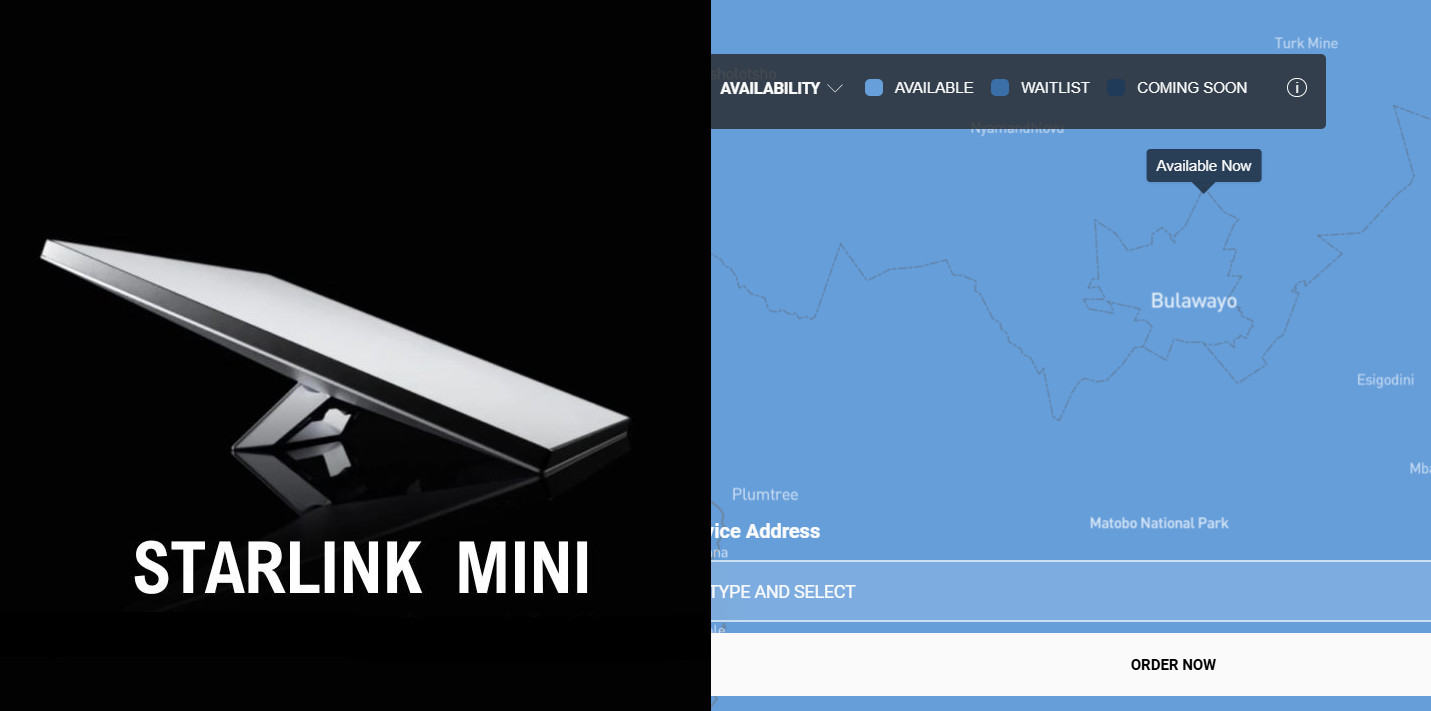I don’t know when it began, but it has been going on for a while now in the boutiques and other indigenous clothes stores. As soon as you enter the store you notice that all the clothes have no price tags. A creepy guy or lady follows you around as you go around the racks. Most of the time, they inquire on how they can help you.
Then you realize that most of the clothes for sale are not even on display but hidden in a secret warehouse somewhere and you need to be a fashion expert to know exactly what you want and get it.
Finally when you are able to figure out what you want and leave the shop you cannot help shake the sneaking feeling that probably ended up paying more than what the item was worth although you can never be able to prove it.
I almost ended up in a similar situation a few weeks ago. I was looking for a web host for my new website. Since the site will cater almost exclusively for Zimbabweans I decided to go for a local host because I figured the added speed for the site will be a plus.
But since I am a control freak I wanted a VPS that would grant me greater autonomy. Little did I know I was in for a tough ride. I also wanted a service provider that would allow me to scale my service up or down at the click of a button. In short I wanted a local version of the Amazon Web Service or something like OVH.
That’s when I noticed a lot of the local players have a marketing philosophy not dissimilar to the ones adopted by the local clothing shops. A good number of their websites have forms which you have to fill in order to get in touch with their sales or technical department who never fail to ask the old age question;” How may we help you?”
Now if you are like me, an Edgars/Powersales guy who prefers to get his clothes off the rack, you prefer to see the goods first because you don’t “know” exactly what you want perhaps because you don’t know what the Service provider has or what their pricing model is.
You don’t know what they charge for each and every particular service so you don’t know what to opt for or what the opportunity cost of your decision is. And at the end of the day you cannot simply shake the sneaky feeling that they charge different products depending on who you are or how well you negotiate.
Do they charge for support or is it free? What do you need to do to get an upgrade or downgrade? Do you have to renegotiate each and every one of these and how long is it going to take? Imagine having to go from company to company asking for a quotation. It will probably take you longer and more effort than it should. Now those are exactly the sort of problems the internet was invented to solve.
It would be nice if local service providers come up with easy to access services like those found on the international market. Why should Zimbabweans waste bandwidth storing their files in Google Drive when local companies can offer the same service especially with the rise of fibre uptake?
So far after the development of easily accessible local payment services like the Pay4app and Paynow, the only impediment to such services is that they are not available. Or perhaps they are, but the ordinary consumer is not aware they are or how they can access them.
We need our own cloud services, hosted locally to help ease the strain on our international bandwidth. One of the reasons US and European ISPs seem to offer better deals than our local ISPs is that most of the bandwidth for these foreign ISP is local from their point of view. It is hard to envisage a local US internet user having the need to access foreign hosted services for more than a few times a day if at all.
On the other hand, most of us use international bandwidth. From Google, YouTube, Facebook; or cloud storage services like Amazon, OneDrive, and Rackspace. One of the impediments to local content increasing is the unavailability of easy-to-use cloud services such as VPS servers (excuse my RAS syndrome), cloud storage services like Amazon and Google Drive and other support services.
Questions like, “What do you want?” and “How may we help you?” are difficult to answer. It is a proven fact that when faced with innumerable options humans make the worst of decisions. In other words the more the options one has available to them the more likely they are to make a bad decision. It’s a paradox.
So, in the process of applauding the great strides that we have made in the broadband arena; everyone seems to be quoting their internet speeds in megabits now, it would be great if the service providers offer us services similar to Google Drive, Amazon Web Services, OneDrive and RackSpace without the twenty questions first game.
A nice catalog then a link at the end for those with special needs that require a negotiation. A person pays and their service gets activated and they immediately receive the relevant details in their email and they can start using the service.
You want to know how you can help us? That is how you can help us. That is what we want.
P.S. I purposely did not provide any links to local service providers who ask the “twenty questions.”














Comments
23 responses
ZOL have VPS hosting – you should give them a call for the price list – not cheap compared to other countries though
The distinction between “local” and international bandwidth is (should be?) bogus. Will an extra 100ms latency break the service? If yes, then you *need* a local cloud provider, otherwise use a foreign one.
The problems that would face a local cloud provider are numerous:
1) tiny market
2) bound to be expensive since there are no economies of scale (see 1)
3) power supply
Are all these challenges supposed to be outweighed by “local bandwidth”? IMO – the answer is a big fat NO.
taura hako
plus ridiculous maintenance costs
electricity+bandwidth(unthrottled)
I wouldn’t agree with the assertion that the market is tiny. We just need few serous players not a host of them or none as is the case.
I’d frustratingly add that some service providers are bloody age-old Neanderthals that still use strictly FTP for transfers. To make it worse, its running UNSECURED (not TLS/SFTP) .
I am looking at you iWayAfrica! I had someone I was helping out and was appalled that they do not even have the most rudimentary of file management tools. No phpmyadmin interface. WTF?!
I had to rant. It was over a year ago, and I still remember the experience. Then they have charges for space. Per 50MB. How ridiculous is that?
I dare anyone to request a quote and call them and see what toolsets they have and how much they charge for it.
I’d rather go international.
Am not the IT person but check with Zimhosts, they have some cloud service but uptake seems not to be good.
they are reselling hosting from http://www.webfusion.co.uk/
rather they rent vps’s from there
afrihost and hetzner offer way better deals than most Zim hosts. I think its a better tradeoff between cost and speed. You even get 5 MySQL DBs and loads of email.
If you go Afrihost, you may as well go International where they charge less for unlimited databases, subdomains and a whole lot more features.
Digital Ocean is easy to use and sets up in about 50 seconds. I don’t work for them, but have used a number of cloud providers in my own hosting business… and they scale too. Might be the way to go for you.
Come on guys we need to create jobs here in zimbabwe, all thos silly excuses ngaambomira. First of all zvibvunze kuti mamwe macloud service akatanga aine vanhu 3 million here, bsides imagine all fibre connection arilinked to zimbabwe obva abreaker down unoitasei. And do u you knw y internet is cheap in america? Its bcoz thy use/support local content( social media , cloud service , emails ,blogsites , gaming ,etc) , we hv to support zveduwo muri vanhu rudzi asingade kubhadhirara mwana vako school fees asi vemumwe murume unoda . Hanzi heee magetsi wht wht wht stop it guys, lets face reality and pave way for th future. Look at china, russia etc thy use their local content more thn american based content. Lets learn to giv support to all local developers ,thts the first step to prosperity muzimba. And to all local developers out there learn to release beta versions of yo app. No body spents money on untested apps. God bless you all
LOL – in which reality does one run cloud services without electricity? Load-shedding is our reality until a local genius invents a pedal-powered data center.
Infrastructure is important – internet is ‘cheap’ in America because the government invested heavily in developing the infrastructure: it’s even cheaper in Europe (because of competition, the laws and high population density). Cloud services are built on the foundations of reliable electricity supply and sturdy data networks.
Taps kwedu handiziwe kuti magetsi akagumisidza kuenda rinhi, sometimes common sense dzinofanira kuclicker musoro. Look at econet vakapfura sei pavalley ya2008, ndosaka kuine maback up power supplys. Do you knw kyt u can even use full house nesolar enegy? Solar enegy can cost a lot but minimun duration is 20 years according to a usa based solar specialist .Mari ndoinotaura chete , sometimes we think we r dealin with th ryt problem tisingaziwe kyt maya takarasika. Chingoti mazimbo haana mari finish
Do you have any idea of how much wattage a single server at capacity draws?!! let’s say 130W (equivalent to 16 energy-saver lamps commonly used with solar power). Multiply that by 30 servers in a rack and you have the equivalent power draw of all the houses in your street – and this is just for one rack: I’ll leave data center energy usage to your imagination.
The bottom line is you can’t use solar energy for that. A diesel generator is the only option, and that is going to get very expensive quickly. Remember you are competing against the AWSes and Digital Oceans of the world which have cheap and reliable electricity.
The writer has a point though, its high time that we start to be self reliant in terms of technology but as others have said there are logistics that need to be put in place before the service become profitable. Major issues like POWER Supply needs to be addressed. I am based in SA at the moment and this idea has come as an eye opener to uplift our country in technology
This article has come at the right moment…Someone just asked me to look for a local dedicated server to rent and all i can say for now is its a headache. The few i have found so far you will find one has a all these features but lacks one certain feature. And then there is the issue of back ups. On Digital Ocean, backing up your server is just a click away, so is the same with restoring. Overall I choose international hosting because of reliability, having access to latest hardware, minimal power outages, connection to fast internet, and good response times when it comes to support which is 24 hours online.
Obviously someone can setup a cloud services company in Zimbabwe, but I believe the running costs and the business level activities do not justify opening up a commercial data center here.
One solution might be to invite companies to open up data centers that serve other areas of the world. But the bureaucracy, and the indeginisation laws will obviously shoot that down.
I am in no way discouraging the entrepreneurs among us: I’m just calling it like I see it.
I acquired a capable rack-mountable server 3 months ago, hoping to set up virtualized servers for resale (think ‘cloud-lite’). I contacted a few ISPs hoping to colocate my server but the prices they quoted were prohibitive. I sold the server.
If anyone wants to lose money providing local cloud services for a low price: I’ll be your first customer!
for tafadzwa.com I used windows azure, just to get a feel of this cloud/scale thingy everyone is talking about. I love it! I used asp .net and mysql and it costs about ZAR90 per month (depends on usage). Easy deployment from visual studio, awesonme managment tools, staging/prod environments, lots of features.
noticed that most people are talking of web hosting not cloud services, i once met my Directors in SA and i was telling them about cloud computing (PaaS , SaaS and IaaS) and visualization and they were shock that how did i know that. Most companies are still thinking of buying physical servers
Check out http://www.zitahost.com
Well , here is a company that is run by a Zimbabwean , http://www.nivacity.com although they are selling american based co-located services they cater for Zimbabweans from here .. Pretty good support too